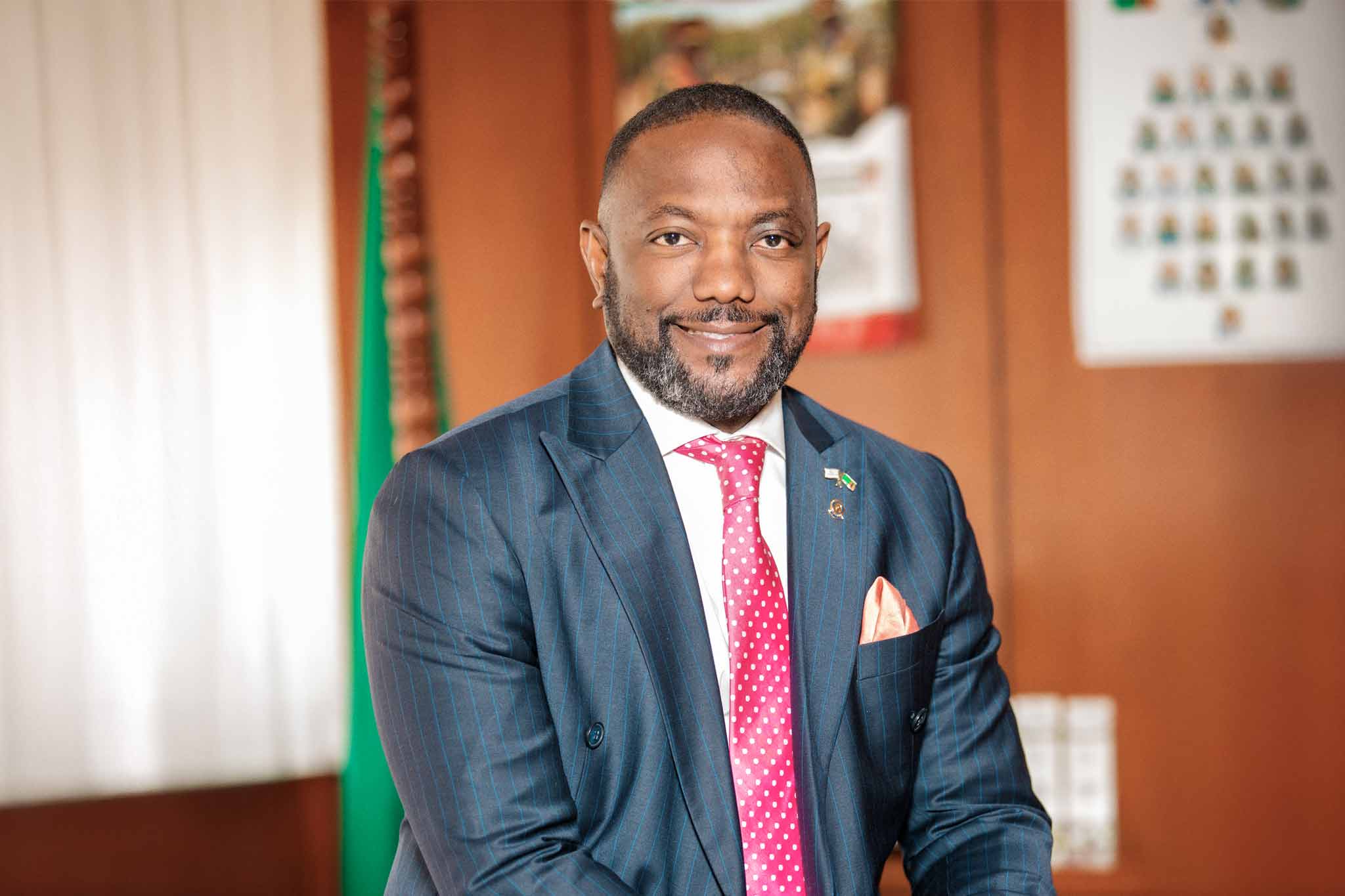During the 1960s, the world was gripped with coverage of the battle between the Cold War adversaries, the Soviet Union and the United States, to control the final frontier: space. In what became known as the ‘space race’, this culminated in the 1969 mission of Neil Armstrong and Buzz Aldrin to reach, and ultimately set foot on, the moon.
Most people weren’t aware, however, that at the same time, a third country had also quite surprisingly entered the fray with its space programme: Zambia. Appointing himself as the director of Zambia’s unofficial National Academy of Science, Space Research and Philosophy, the stated goals of Edward Makuka Nkoloso were not just to join the race but to be the first to land his cadets, or ‘afronauts’, as he called them, on the moon.
While Edward Makuka Nkoloso’s overtures to several countries for funding for his programme came to nought and were viewed as a more comical than serious pursuit, in their own way, they did act as a sign of self-confidence for a country that had only just gained its independence from British rule in 1964. More than anything else, they suggested that there might be no limits to the ambitions of the newly arisen nation.
Fast-forward more than half a century, and on a continent broadly still playing catch-up with the rest of the world, this sense of ambition is now permeating the country’s nascent business event industry. The destination possesses a rich mosaic of meeting facilities and supporting infrastructure, particularly in its capital, Lusaka. The Mulungushi International Conference Centre and Kenneth Kaunda International Conference Centre are stand-out venues, as well as those in the top tourist draw of Livingstone near Mosi-oa-Tunya (Victoria Falls). Today’s vision for growth around these facilities is being driven by the harnessing of the latent potential of the industry to political support from the centre that is essential to deliver it.
“This politician was once an operator in business events, and in my past life, I complained to him about the inertia in government,” says Rodney Sikumba, Zambian Minister of Tourism. “When I crossed over, I better understood the processes that effect change in the public sector. Now, I am always preaching to others to trust the process. It may be slow, but once in motion, government progress can be unstoppable, in a good way.”
The government wants to attach this momentum of progress to an industry that it sees significant potential for in the immediate future and over the mid-to-longer-term horizons.
“In five years, I foresee our destination will be where Africa meets”
“Our overall business events sector is built on a strong hosting history that dates back over six decades and is headed for significant growth in the next two years,” says Minister Rodney Sikumba. “We have built a reputation as gracious hosts and a beacon of peace sustained over the decades. We are now ready to harness the economic prowess of hosting. As minister responsible for tourism and its subsectors, my primary interest will be how I increase the number of arrivals, how I increase the length of stay, and what needs to be done to make tourism a top contributor to the national GDP.
“The tourism development agenda is also guided by the Zambia Tourism Master Plan, a 20-year strategy launched in 2018. However, the pandemic revealed the size of our business event economy. Over the past year, we have been preparing to develop a specific guiding document for this subsector. The silver lining of the pandemic was its revelation of the size of the business tourism industry, not only in our country but across the African continent.”
Recognising not just this scale but also the dimensions and complexity of the business event sector, Zambia is focusing more on developing its association base and beginning to enlist the country’s key sectors that can help properly enrich the industry.
“The associations movement in Zambia is emerging and in its formative years, and if I were to pick the most visible, the legal fraternity, medical practitioners, accountants, engineers, and unions would top my list. Having never commercially viewed associations, academia, and corporations as key components of our attractiveness as a destination, we are now working on stakeholder engagement as part of destination preparedness. This is our ‘green field’ from where we build our hosting masses. You will be interested to know that our main teaching hospital attracts significant numbers of students and faculty all year round, and we are now very keen to see how we can begin including these numbers.
“Zambia is a traditional host and enjoys rotational meetings that come to us based on our historical ties or membership to regional bodies. Further, our country has many regional and international bodies that continually host conversations at different levels. As the Zambian government, we have a deliberate policy encouraging government ministries and agencies to actively pursue hosting opportunities. The work we are putting in now will undoubtedly yield results in the next three years.”
In tandem with tackling this widened scope of the business event industry’s remit to extract its full potential, the government understands that it must simultaneously tackle some of the more pressing global issues for any industry today, none more so than that of sustainability, which the country is acutely aware of.
“We are at the tail end of what will soon be referred to as the worst drought our country has faced in the last three decades, where sectors such as agriculture were crippled, and our riverbeds dried up. But the resilience of tourism shone brighter than ever, and we now find ourselves in conversations that require us to rethink how we will ensure that we embed knowledge transfer about attracting and hosting events with sustainability at their core. In 2024, we hosted the first Global EverGreening Alliance meeting in Africa. We utilised most of our outdoors for the conference, showcasing the attractive hosting attributes in our destination.”
Tapping the destination’s USPs to help reduce event footprints will be central to the sustainability drive. At the same time, another strand of the meetings industry that has been garnering increasing interest in recent years and where a visible footprint is a desired outcome is that of a lasting legacy. Again, those promoting the Zambian business events industry have already tuned into this area.
“Our position as a country linked by land and water to nine neighbours gives us a competitive advantage of cross-border travel as a business events host”
“Personally, I am very intentional about the things I invest public resources into, and I do hope posterity will remember me kindly so I will respond to this with a practical example. Last year, we attracted the 67th Meeting of the United Nations Tourism Regional Commission for Africa, held in Livingstone. On the last day, the UN Secretary-General broke ground at what will become the first-ever UN Tourism Academy.”
With the path to progress and growth seemingly solidly laid for what is hoped will be a bright future for the business event industry, several clear challenges remain for Zambia to overcome, to ensure the country’s industry development doesn’t become derailed by blockages along the way.
“Before my political appointment, I operated a business events company based in Livingstone, our tourist capital. The number one challenge was connectivity; number two, limited hosting capacity; and number three, the lack of a skilled workforce specific to business events. These challenges hold today, so I am dedicating much effort to increasing our hosting capacity through infrastructure development, skills development, and advocacy for increased carriers in Destination Zambia.
“In five years, we will have built the required infrastructure to support our ambitions. We have several significant projects underway to increase our hosting capacity and ease access to our various natural attractions, with more to offer. We expect to see more in numbers.”
Currently undertaking projects aimed at better developing accessibility, safety, infrastructure and cultural and natural assets as part of the Green Resilient and Transformational Tourism Development Project aligned with the Zambia Tourism Master Plan, which has been backed by €89 million from the World Bank. The sights clearly set on boosting visitor numbers to business events have led to initiatives to increase visibility in neighbouring markets on the continent and new source markets further afield that have previously been less aware of, or less exposed to, what the country can offer business event delegates.
“Our position as a country linked by land and water to nine neighbours gives us a competitive advantage of cross-border travel as a business events host, and we are already actively hosting and promoting ourselves for all hosting opportunities within our borders. We have also embarked on increasing eyeballs on the destination through a global digital campaign on various online platforms. The main objective isn’t to convert this to instant visitors, but to increase the number of people that know we exist and what makes us special.”
Bringing a heightened awareness of the country as an event destination to a global audience neatly binds the spirit of ambition of the once space-dreaming ‘afronauts’ to the modern-day country’s evolving meetings industry.
“I firmly believe that Zambia is the world’s best-kept secret. Everyone who visits leaves with a sense of belonging. In five years, I foresee our destination will be where Africa meets.”



